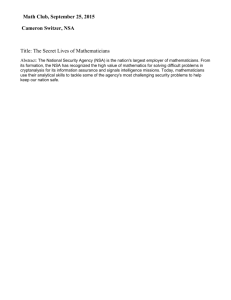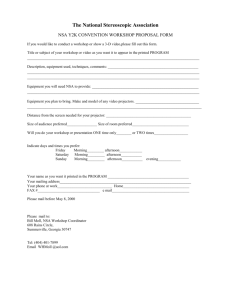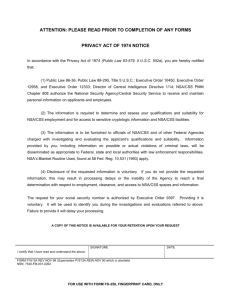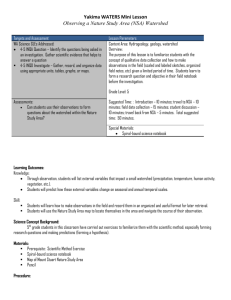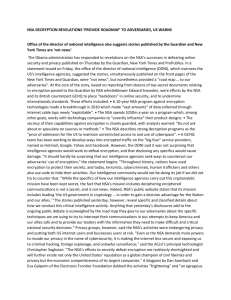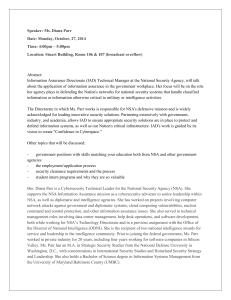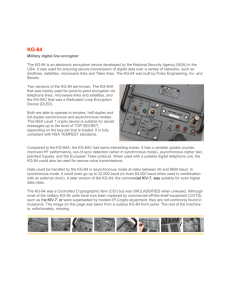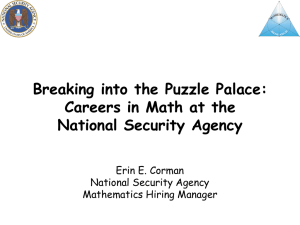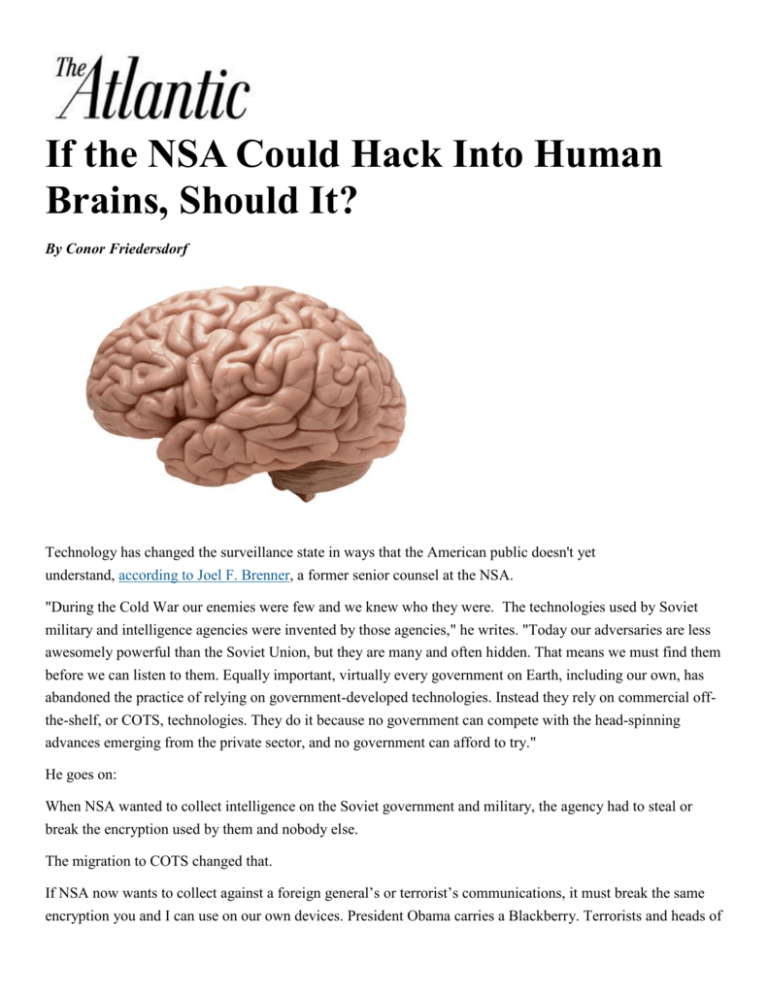
If the NSA Could Hack Into Human
Brains, Should It?
By Conor Friedersdorf
Technology has changed the surveillance state in ways that the American public doesn't yet
understand, according to Joel F. Brenner, a former senior counsel at the NSA.
"During the Cold War our enemies were few and we knew who they were. The technologies used by Soviet
military and intelligence agencies were invented by those agencies," he writes. "Today our adversaries are less
awesomely powerful than the Soviet Union, but they are many and often hidden. That means we must find them
before we can listen to them. Equally important, virtually every government on Earth, including our own, has
abandoned the practice of relying on government-developed technologies. Instead they rely on commercial offthe-shelf, or COTS, technologies. They do it because no government can compete with the head-spinning
advances emerging from the private sector, and no government can afford to try."
He goes on:
When NSA wanted to collect intelligence on the Soviet government and military, the agency had to steal or
break the encryption used by them and nobody else.
The migration to COTS changed that.
If NSA now wants to collect against a foreign general’s or terrorist’s communications, it must break the same
encryption you and I can use on our own devices. President Obama carries a Blackberry. Terrorists and heads of
state use iPhones, Samsungs, and Blackberries too. And they communicate over commercial networks such as
Vodaphone, AT&T, Google, and Yahoo!.
That’s why NSA would want to break the encryption used on every one of those media. If it couldn’t, any
terrorist in Chicago, Kabul, or Cologne would simply use a Blackberry or send messages on Yahoo!. But
therein lies a policy dilemma, because NSA could decrypt almost any private conversation. The distinction
between capabilities and actual practices is therefore more critical than ever. NSA did not create this dilemma,
however, and it cannot be resolved by pushing the agency out of the business of cryptanalysis, because we
would then go truly deaf. Like it or not, the dilemma can be resolved only through oversight mechanisms that
are publicly understood and trusted—but are not themselves entirely transparent.
This overstates the novelty of our era. The fact that the Soviets were the enemy during the Cold War hardly
permitted us to know the identities of every agent of global Communism. We had to find them too before we
could monitor their communications. But what I'd really like to do, after reading those excerpts, is to ask
Brenner a question. Take the logic offered above: that terrorists use virtually every commercial technology,
therefore the NSA must have the ability to break all encryption.
It got me thinking.
U.S. history began in an era of letters. The Framers could've scarcely imagined the cell phone or Internet.
Imagine that a few decades from now, humans have figured out how to communicate telepathically. If someone
desires it, they can open the contents of their brain to a friend or lover thousands of miles away, and vice versa,
in much the same way we can give someone remote access to a hard drive today. Like everyone else, terrorists
would have this new communications capability.
In that world, what should be the NSA's course? Given the attendant technological capability, should its
surveillance professionals shy away from breaking into everyone's minds, thereby "going deaf" to threats
against the United States? Or should it break into everyone's mind to figure out who is thinking about flying
airplanes into buildings or detonating pressure cookers at marathons?
This article available online at:
http://www.theatlantic.com/politics/archive/2013/12/if-the-nsa-could-hack-into-human-brains-should-it/282065/
Copyright © 2013 by The Atlantic Monthly Group. All Rights Reserved.

